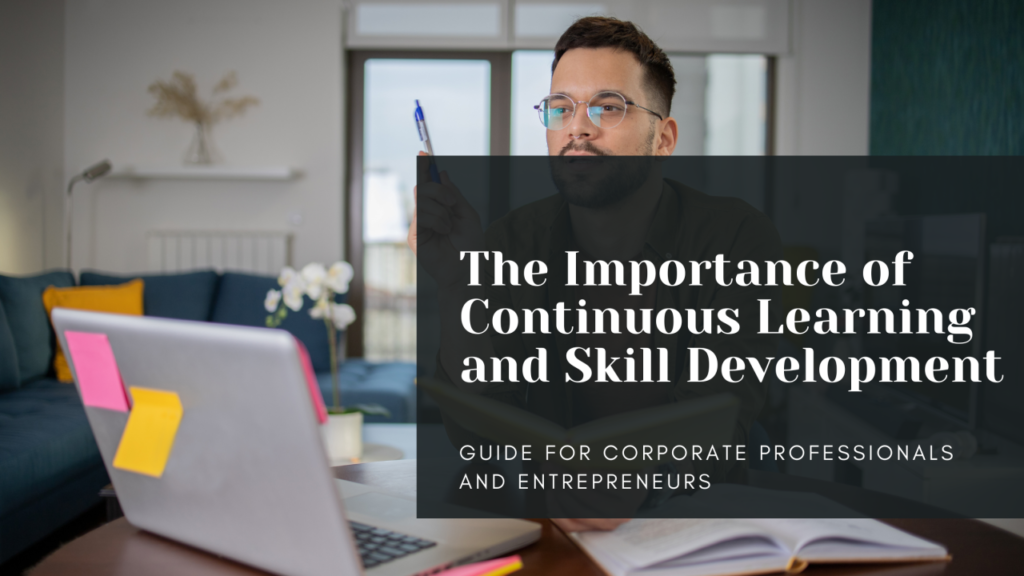In today’s competitive world, knowing how to sell yourself effectively has become vital for advancing personally and professionally. It became not a privilege for business people and social network bloggers but a dire necessity for those who wish to get a better post in the organization and those engaged in the financial profession. Thus, knowing how to sell yourself means that you can market yourself, showing how employable, competent, and valuable an investment you would be in whatever company or organization you find yourself in, then leaving the employer, client, or colleague with no other option than to remember.
In this guide, you will learn techniques on how to develop and market your brand so you can effectively present yourself to your potential employers and clients in a professional manner for them to get to know who you are, what you can do for them, and can lead them to the right decision of hiring you or partnering with your company. From the definition of the fundamental selling proposition that can be summed up as Unique Selling Propositions or USPs to the perfect approach to networking, the present guidelines will assist you in practicing self-promotion in the business and finance realms.
1. Understanding the Concept of Selling Yourself
This is not the same thing as mastering the art of bragging or hype, which is ‘how to sell yourself’ now popular among aspiring corporate managers. It is about cultivating value, expressing oneself honestly, and promoting oneself and one’s services as a credible and competent service provider.

Here are some foundational elements of effective self-promotion:
Define Your Purpose:
Nevertheless, in any endeavor, it is always wise to have a clear picture of the goals that you want to set. Is it an interest in the next promotable job, career shift, or the widening of your reputation that makes you yearn for promotion? Therefore, having a goal will define the route to be followed when branding.
Emphasize Value, Not Just Skills:
Instead of developing an average ‘skills’ section, market yourself as an asset to initiatives, a team, or consumers. For example, an accountant can explain when specific knowledge in preparation of taxes yielded the previous employer enormous profit or improved productivity. People are likelier to believe in and hire you when you start your business on honesty and actual achievement.
2. Know Your Unique Selling Points (USPs)
The specific aspect known as Unique Selling Proposition (USP) is the features that distinguish you from rivals. Understanding how to zero in on and sell yourself using defining features is a significant component of self-selling.

Identify Strengths and Accomplishments:
Consider your work experience, skills, and values. What do you bring to the table that others may not? Think about the qualities, skills, and experiences that make you unique.
Communicate Your USPs Clearly:
Once you’ve identified them, it’s important to communicate them succinctly. Develop an “elevator pitch” that captures your USPs and what you can offer.
For instance, as a financial advisor with a niche in green investment, your USP may be the ability to make clients wealthier while following their conscience. This is a unique and concrete manner of marketing oneself.
3. Building an Online Presence
More so, today, it is impossible to master how to sell oneself without creating a good online profile. Digital identifiers, especially those you make on LinkedIn and other professional social networks, are essential for people as they become their first opinion about you.

Optimize Your LinkedIn Profile:
Ensure you provide a professional, lean profile picture, headline, and experience summary focusing on your skills and unique selling proposition. These should highlight your competencies and interest in your area of specialization in less than a page.
Share Valuable Content:
Building an online presence isn’t just about setting up a profile but engaging with others. Post whatever you find relevant to your industry, including articles, findings, or other news. This is useful as it shows your relevant profile and keeps you visible to potential employers or clients. For this reason, a neat, professional impression is crucial while marketing yourself online and for opportunities to find you.
4. Effective Networking Skills
Networking is an essential part of selling yourself successfully. Networking with people in your line of work helps you access new prospects, learn, and even train.

Be Authentic and Genuine:
When networking, avoid treating it as a transactional activity. Instead, aim to build genuine connections based on mutual interests and respect. Show curiosity about others’ work and achievements, and be generous with your insights and advice.
Follow Up and Stay Connected:
Networking doesn’t stop at the first introduction. Check in with connections occasionally and wish them well on new postings, projects, or materials. The second benefit of some sources is that they inform your network, which may lead to referrals or recommendations.
It may be self-promoting, but it is very important because it is the only way to market yourself, build your network, and gain credibility within your field.
5. Showcase Your Expertise Through Content Creation
Having your website and publishing your articles and blog posts are two ways of selling yourself to prospective employers, especially in today’s business world, where business and finance sectors value expertise and ideas.

Here are some ways to share your knowledge:
Write Blog Posts or Articles:
If you are interested in a particular field, you can write articles for LinkedIn or a related website. This demonstrates expertise and makes you a sought-after go-to person in the specific field in which you are focused.
Engage in Public Speaking or Webinars:
Offering to speak at industry events, webinars, or local workshops can be another way to demonstrate your knowledge and build credibility. Public speaking also helps people remember you as an expert in your field.
Teaching others benefits both of you, making it easier to sell your image and cementing your personal brand in the process.
6. Leveraging Testimonials and Endorsements
A second way it may be adequate to ‘sell yourself ‘is by finding out from other people. Recommendations and references can help bolster your case for legitimacy, improving the creation of your message.

Collect Testimonials:
If you’ve worked with clients, colleagues, or supervisors who value your work, consider asking them for a testimonial. Receiving positive feedback from people you trust can be incredibly motivating because it emphasizes aspects you are confident about. They appeal to who you are in a way that could not be easily argued with.
Use LinkedIn Recommendations:
LinkedIn is an excellent platform for displaying endorsements. Encourage colleagues or clients to write recommendations for your profile, and don’t hesitate to reciprocate. Strong recommendations from reputable professionals can set you apart in a competitive field.
These testimonials provide third-party validation and are vital in learning how to sell yourself effectively, as they credibly reinforce your strengths.
7. Developing a Professional Image
Whether online or physically, first impressions and persona are central to self-promotion. ‘A good professional image gives the perception of professionalism, reliability and fit with the formal business practice.’

Dress and Communication:
Your attire and communication style should reflect your profession. For instance, those working in finance will find it relevant to dress formally- buttoned shirts with neatly tucked-in pants, while the opposite is true for the creative fields where the staff dress relatively casually- polo shirts and tuck-in trousers. Being articulate in general or within the specific context of emailing, speaking at meetings, or making presentations also enhances your image.
Align with Your Brand Values:
This also means that your email signature and username on any social media platforms you may be active on should reflect this. Everything you do has echoes, including colors, style, and tone, and it’s brilliant.
Consistent offline and online support the concept of packaging a job seeker and making them more recognizable to employers, clients, and connections.
8. Continuous Learning and Skill Development
This is because growth is the lifeblood of any organization that aims to be relevant in its market. Alternatively, skills can help you better formulate yourself as a knowledgeable and flexible employee.

Stay Updated on Industry Trends:
Monitor the latest developments in your industry. For example, finance professionals must stay current on regulations and market changes, while technology professionals must keep up with new software or methodologies.
Pursue Certifications and Training:
Acquiring or even attaining specific professional training could show that one is willing to further one’s training. Certifications in project management, data analysis, or financial planning can set you apart from others in your field.
Being proactive about your development helps strengthen your reputation and adds more value when you sell yourself as a skilled and dedicated professional.
Conclusion
That is why you are being trained to sell yourself or, as some people would prefer, sell who you are; people sell themselves by creating the best image, building real-life connections, and growing personally and professionally. Recognizing your talent, creating an efficient online profile, applying practical networking techniques, and creating personal branding that can change people’s attitudes to their advantage are opportunities to develop a rewarding personal brand.
Selling yourself is not a process that can be achieved in one click; it is a process of work carried out throughout one’s life, which requires patience, commitment, and a readiness to change. Try to implement all these ideas tomorrow and see how they may one day change your career path and make you one of the earnest and reputable people in the two industries.





Prwtty part oof content. I just stumbled upon your website and in accession capital to say that
I acquire actually loved account your blog posts. Any way
I will be subscribing to your augment or even I success you get entry to
consistently rapidly.
Here is my web-site; SEO продвижение сайта с гарантией